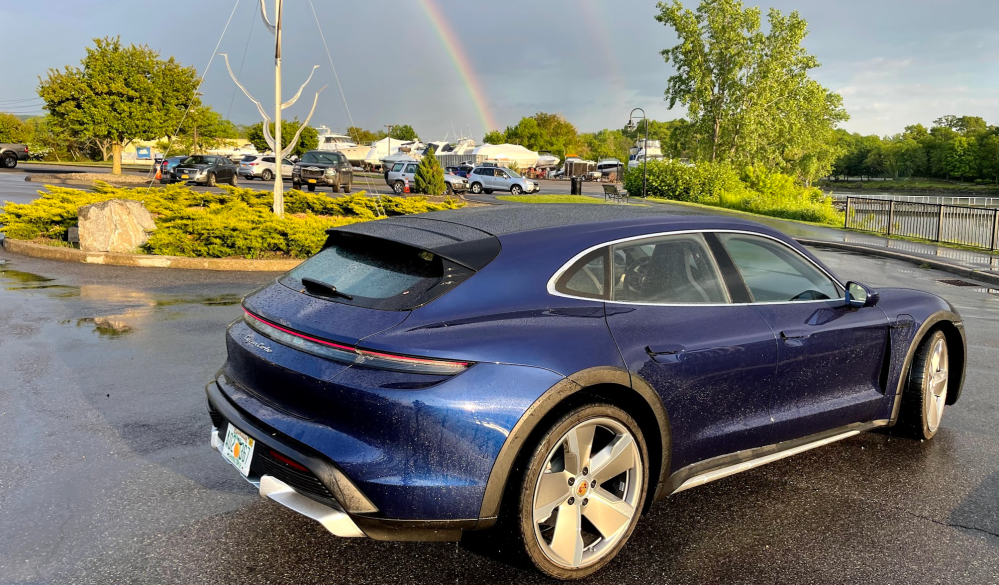
Porsche looks to advance its efforts against CO2 emissions by calling upon its nearly 1,300 suppliers to only use renewable energy in manufacturing components for its vehicles. Currently, the sports car manufacturer’s supply chain contributes about 20% of its total greenhouse gas emissions.
Porsche is a household name for automakers with nearly 100 years of experience developing and manufacturing sports cars. While much of that tenure has seen success around traditional ICE vehicles, Porsche hopes to set a new track record in terms of decarbonization while fully embracing the electrification movement.
Much of this movement has stemmed from the early success of the Porsche Taycan. Furthermore, Porsche has claimed its Taycan Cross Turismo became the world’s first electric sports car to remain carbon neutral throughout its entire service life.
As early as 2025, at least 50% of new Porsches sold will include an electric drive. Additionally, the automaker has already shared plans to invest more than a billion euros in decarbonization measures over the next 10 years.
With the automaker’s recent announcement, Porsche now looks to its series suppliers to follow suit in order to ensure the company remains at least carbon-neutral moving forward in manufacturing.

Porsche to require renewable energy from suppliers
In a recent press release, Porsche has shared next steps in furthering its efforts against CO2 emissions by demanding its nearly 1,300 suppliers exclusive use renewable energy to manufacturer its vehicle components.
This new policy applies to any and all contracts awarded to provide production material for new vehicle projects. Furthermore, any suppliers unwilling to switch to certified green energy will no longer be considered for contracts with Porsche moving forward. Uwe-Karsten Städter, member of the Executive Board for Procurement at Porsche AG, explains:
Our battery cell suppliers have already had to use green energy since 2020. And now we are taking the next important step: we stipulate that our series suppliers also use only renewable energy to produce our components, to help reduce CO2 emissions even further. We recognize that we have a responsibility to ensure that supply chains are transparent and sustainable.
This new measure is part of a larger, more ambitious goal surrounding Porsche’s value chain and relationship with suppliers. Porsche is striving to be carbon neutral throughout its supply chain by 2030.
As previously mentioned, Porsche’s supply chain currently accounts for about 20% of its emissions, but is predicted to rise to 40% by 2030. Städter again explains how Porsche has the foresight to pivot and prevent this issue:
By using only renewable energy sources, our suppliers are following our example in our efforts to reach CO2 neutrality. We plan to have even more intensive talks with our partners in order to drive forward improvements in our sustainability. It is only by working together that we will be able to combat ongoing climate change.
Porsche has its own carbon-neutral efforts aside from suppliers
This new focus on certified green energy from suppliers is part of a continued effort from Porsche who has made strides of its own in battling internal CO2 emissions. Currently, all major Porsche manufacturing sites are already CO2 neutral in terms of operations, including its headquarters in Stuttgart, Germany.
By 2030, Porsche looks to eclipse its 2025 goal and have more than 80% of all new vehicles manufactured be purely electric or plug-in hybrids.
As of July 2021, all new supplier contracts will need to meet Porsche’s clean energy requirements to do any sort of business with the automaker.
Electrek’s Take
It’s always welcomed to see legacy automakers of any size making serious efforts to reduce their carbon footprint. Porsche has seen great success and feedback with the electric Taycan, and with other EVs on the way such as an all-electric Macan, there’s plenty to look forward to for 2025 and beyond.
Making its own manufacturing plants carbon-neutral is a big step for the automaker, but this new condition surrounding its supply chain could end up making the biggest difference in expanding green energy throughout the company.
To recognize the environmental issues in the current supply chain, and pivoting policy to reverse that is admirable. Furthermore, having the foresight to look down the value chain path in 2030, predicting even worse percentages, and make changes now is also refreshing to see.
We hope Porsche’s suppliers follow suit, so we can see an entire lineup of electrified sports cars long before 2030.
Subscribe to Electrek on YouTube for exclusive videos and subscribe to the podcast.
Author: Scooter Doll
Source: Electrek



